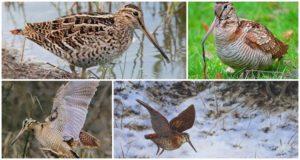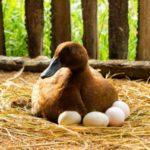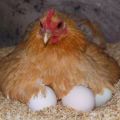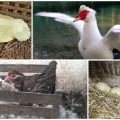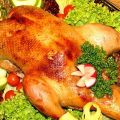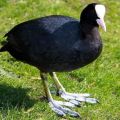Why a duck eats and throws its eggs out of the nest and what to do, how to prevent
Often the owner, having come to the poultry house in the morning, discovers that the nest is ruined - half of the eggs are thrown out. Egg spoilage causes losses, reduces the number of hatched clutches. Why do ducks throw their eggs out of the nest, and how to avoid trouble? Sometimes there is no reason to worry - ducks independently identify an egg with a dead embryo, but sometimes it takes pathological forms. There are many reasons for behavior, and each of them has a different way of solving.
Why does the Indo-woman throw out fertilized eggs with chicks from the nest
The hatching period for chicks depends on the breed. Musk Indo-Duck normally begins laying in the spring, and embryos develop for up to 5 months. The first clutch occurs at 6 months. The long term becomes a serious problem when the bird begins to destroy its own nests. During incubation, a number of conditions must be observed:
- Do not disturb the hen during laying.
- Do not touch the nest, do not move it to another place.
- Do not turn eggs yourself.
It is more common for a duck to eat its eggs if the breeder does not follow any of these rules. This is especially the case for novice farmers, who endlessly disturb the duck and do not allow it to sit normally on the clutch. It makes sense to inspect the nest only in mulard, because the layers of this breed do not feel unfertilized eggs, which may affect the further growing strategy.
Before laying it, it is advisable to ensure that the bird is in normal shape, not depleted and receiving the required amount of nutrients and minerals.
Most often, ducks throw out and eat "dead" eggs, without fertilized embryos. Therefore, there is no need to frequently check the clutch - the bird will do it on its own. If you shift the nesting site, the duck will leave it and begin to rush in another place.
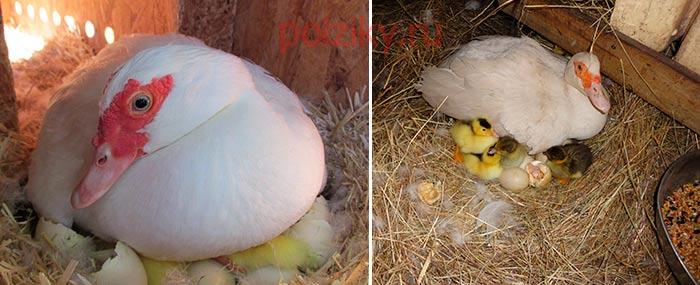
What should be done in this case?
If a duck has thrown an empty, unfertilized egg, there is no reason to worry. So the bird frees up space in the nest, and does not waste time and energy on incubating dead ducklings. However, if the Indo-duck throws out and eats even good eggs, it may be due to excessive anxiety and nervousness.
Indo-women often refuse to sit on the masonry if there is no free access to a container with water for swimming. Water is very important for ducks - with wet feathers they cool the hatched ducklings and protect them from overheating.If there is no water nearby, the duck can destroy all the masonry and start building a nest in another place.
How to avoid problems?
Proper maintenance of the bird, complete rest during incubation and the availability of food, drink and a place for walking are the key to proper rearing of ducklings. To do this, you need to make sure that the duck is ready for incubation and does not lack certain trace elements.
The nest should be located in a calm, impassable place, not far from feeders and drinkers.
It is forbidden to scare, touch the Indoor, rearrange the nests or try to turn the masonry. The house should be warm, without drafts and too large aisles. Too bright lighting has a detrimental effect on the hatching ability of Indo-girls.
